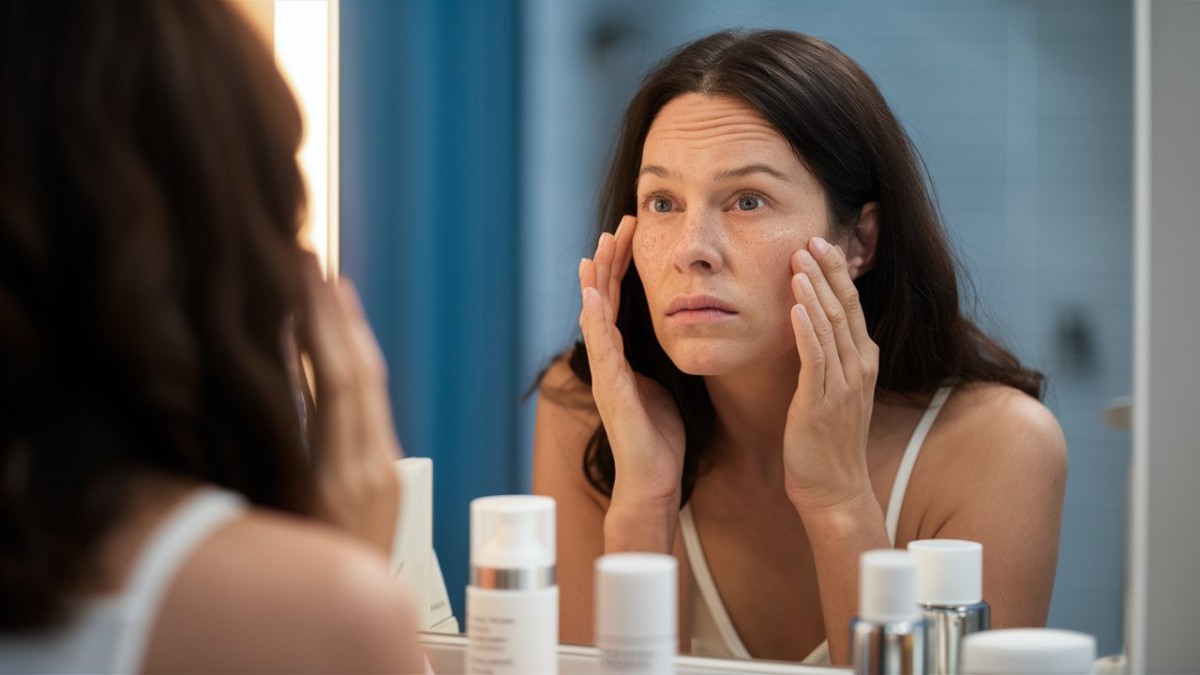Your skin looks dull!
Are you hearing this from a lot of people around you?
It is a high chance that you have dull skin.
What is Dull Skin?
Dull skin is normally noticed when the skin lacks glow. It appears tired, and wearied out, and may have an uneven tone. Unlike healthy skin that reflects a smooth and youthful glow, dull skin looks worn out. You can notice duller-looking skin amongst individuals of all ages and skin types. But since it enhances the fine lines and wrinkles, it makes the skin look older.
What are the Causes of Dull Skin?
Dehydrated Skin.
If your skin lacks moisture and feels very tired, then it may appear dull. It is mostly because our skin needs proper hydration from moisturizers to keep it looking fresh.
Dullness due to pollution.
Pollution is one of the key reasons behind dull skin. Our skin is exposed to a lot of dust, smoke, and harmful chemical fumes from vehicles daily. That is why it is very important to protect the skin from pollution.
Lack of Vitamin C in your skin.
If your skin lacks Vitamin C it might lose its brightness. Since Vitamin C helps boost the collagen, it helps with skin repair. Hence making the skin look less dull.
Sun damaged Skin
Sun damage is one of the major reasons for many skin conditions. The harmful UV radiation can have a dangerous impact on the skin.
What are the Symptoms of Dull Skin?
Symptoms of dull skin are quite easy to identify. The skin may appear worn out and you may look a bit tired as well. Your skin also has an uneven skin tone and appears wrinkly. A dull skin also is quite sensitive, hence you can also experience flakiness and roughness on the skin.
Now that we know what are the signs of dull skin, let’s dive into the solution.
Here are 5 tips to cure your dull skin.
Moisturize your skin daily
Regular moisturizing is very important for your skin. Hydration helps maintain the skin’s barrier function, preventing dryness and flakiness. Moisturizers provide essential nutrients and water, ensuring that the skin remains soft and radiant. Opt for products containing hyaluronic acid, glycerin, or ceramides, which attract and retain moisture. Applying moisturizer immediately after cleansing can lock in hydration, improving the skin’s texture and glow.
Cleansing your face regularly
Proper cleansing is very important for maintaining skin radiance. It removes dirt, oil, makeup, and environmental pollutants that can clog pores and dull the complexion. Using a gentle cleanser suited to your skin type ensures effective cleaning without stripping the skin of its natural oils. Cleansing twice daily, morning and night, helps maintain a fresh and clear complexion. It also preps the skin for other skincare products, allowing them to penetrate more effectively.
Sunscreen
Daily application of sunscreen is vital to protect skin from UV damage, a major cause of dullness. UV rays can accelerate skin aging, causing hyperpigmentation, fine lines, and a loss of elasticity. A broad-spectrum sunscreen with an SPF of at least 30 can shield the skin from harmful UVA and UVB rays. Having a good sunscreen in your daily skincare routine is a must.
Include a Vitamin C Serum
Including a Vitamin C serum in your skincare routine can significantly enhance skin brightness. Vitamin C is a powerful antioxidant that combats free radicals, reduces pigmentation, and promotes collagen production. It helps in fading dark spots, evening out the skin tone, and fights the free radicals. Applying a Vitamin C serum in the morning, before sunscreen, protects the skin from any kind of damage from outside and boosts its natural defense mechanism.
Maintain a Healthy Diet and Drink Water.
Hydrating your skin starts within your body. This means that if you do not drink water and have a healthy diet, it shows on your skin. Your skin is the mirror of your bodily health, hence you need to maintain a well-balanced diet plan and drink water to avoid dull skin.
Conclusion
Having dull skin can be combated with these tips, and by following a proper skincare routine. yet, if you still find issues with the various products, consult the dermatologist so that they can guide you with it.
